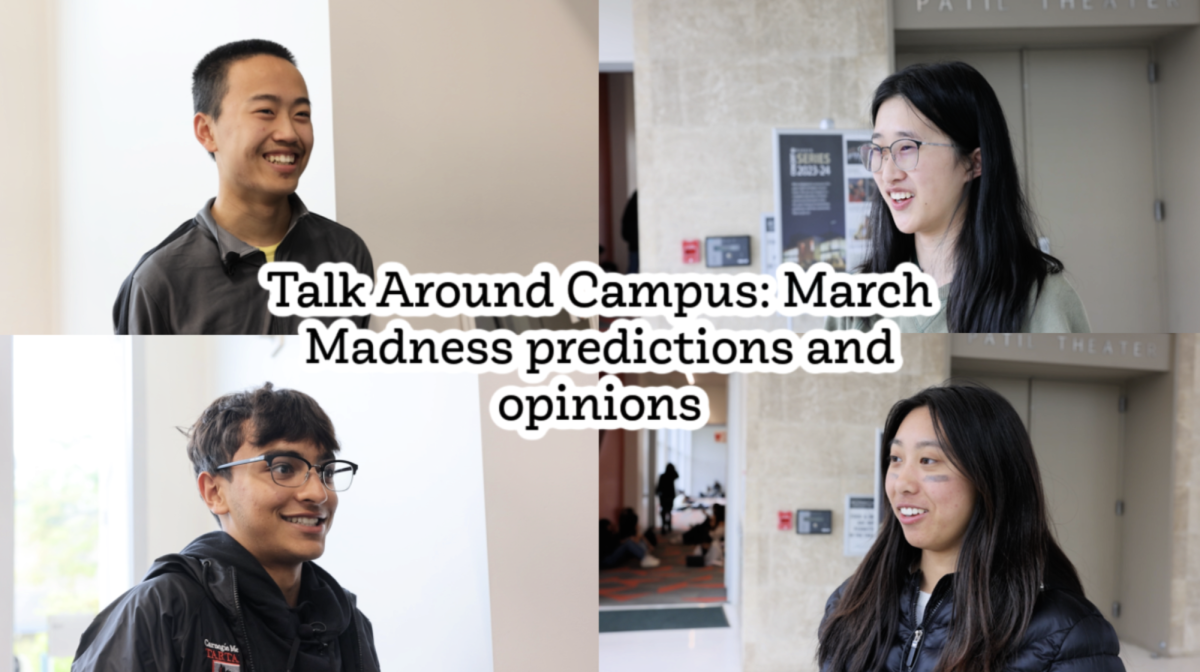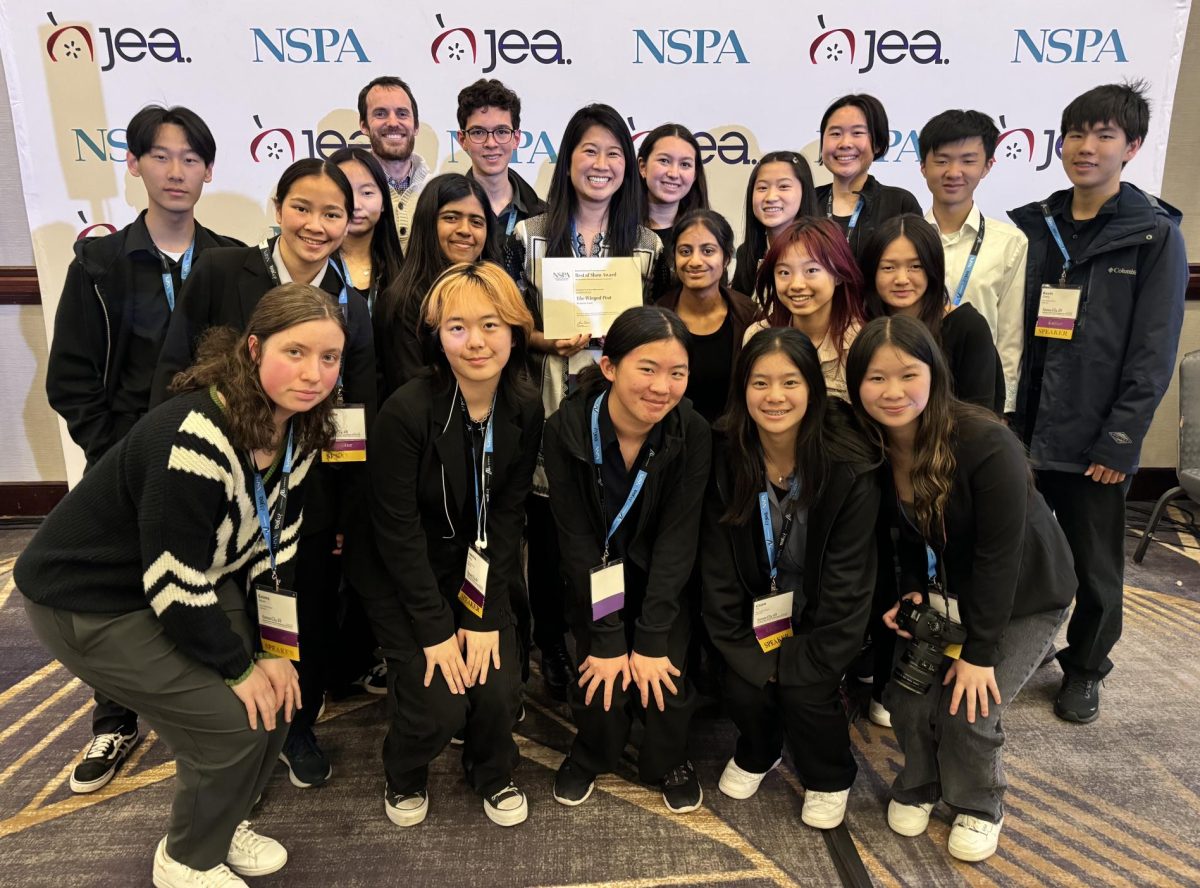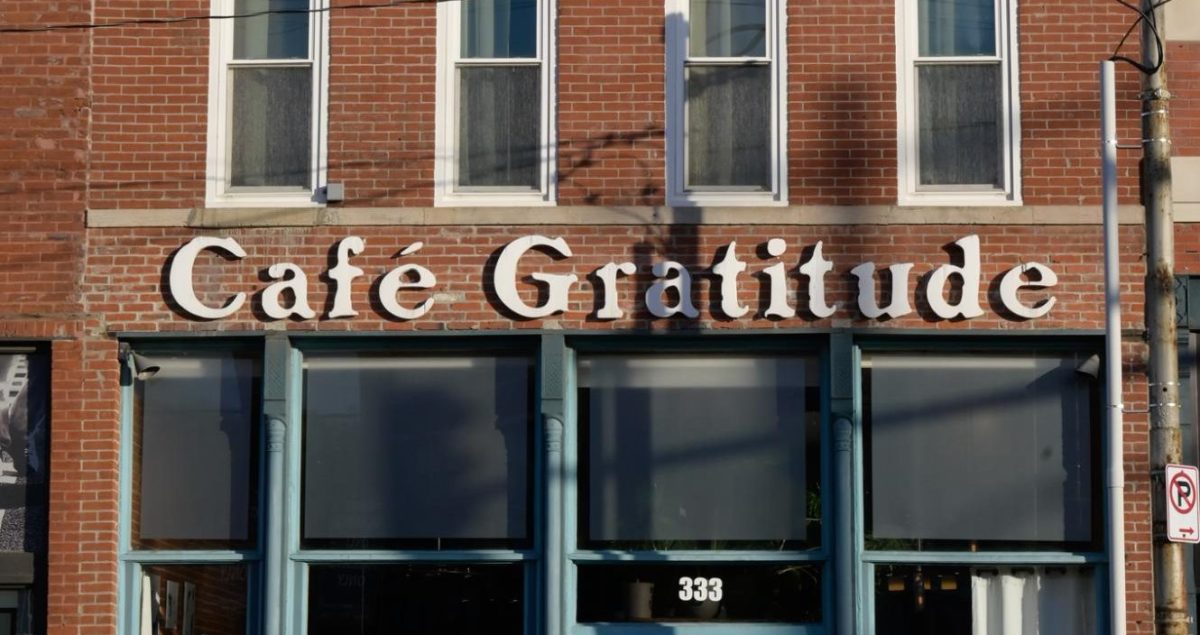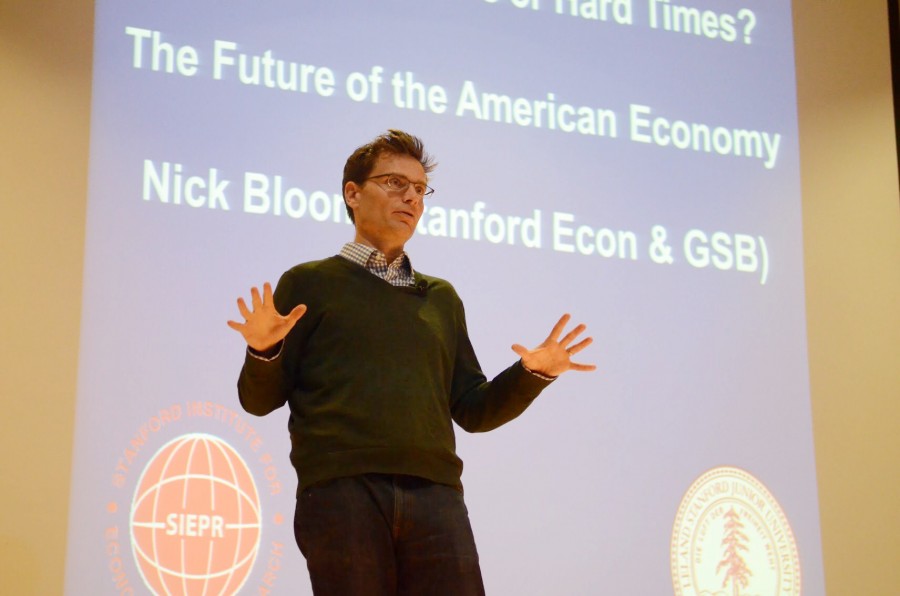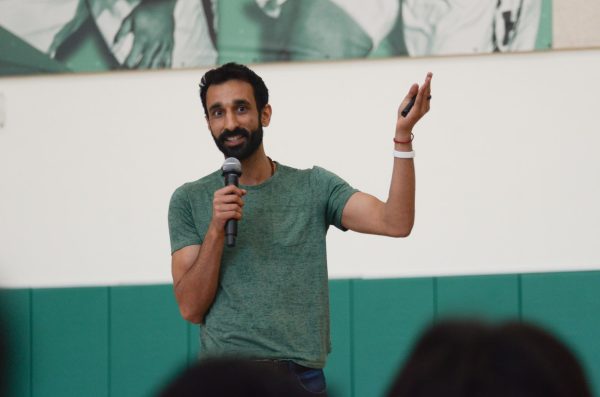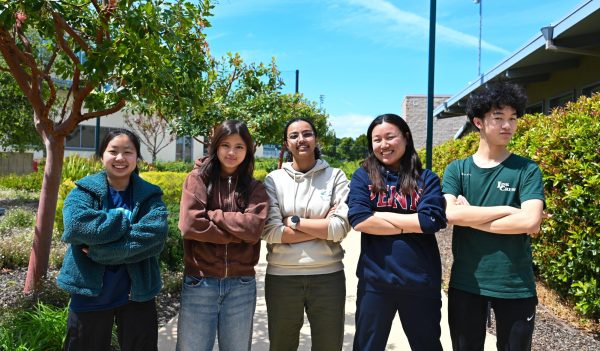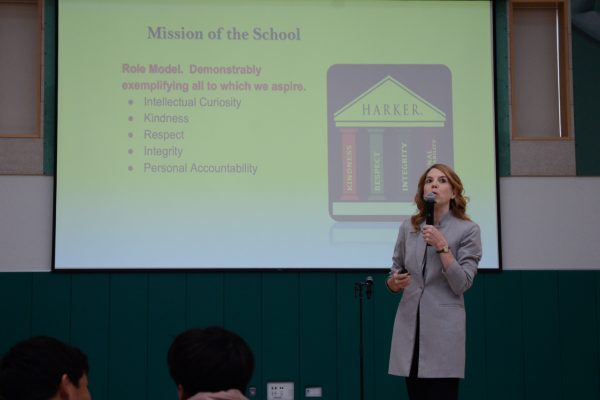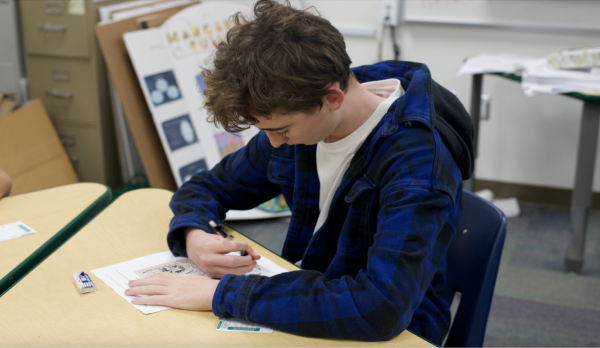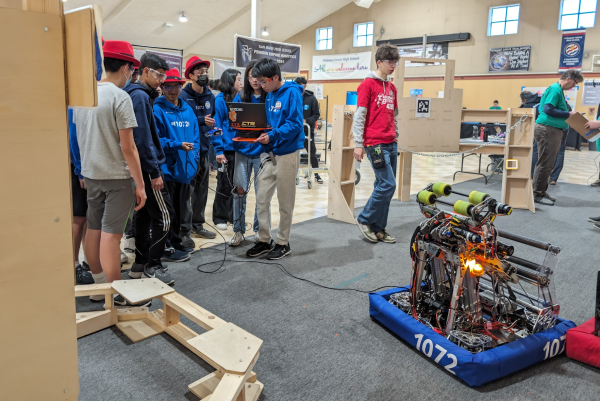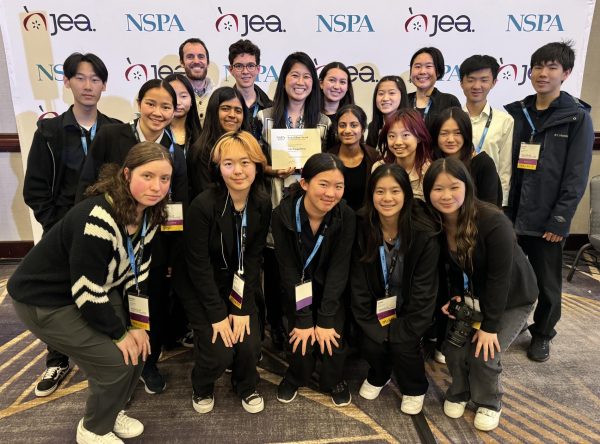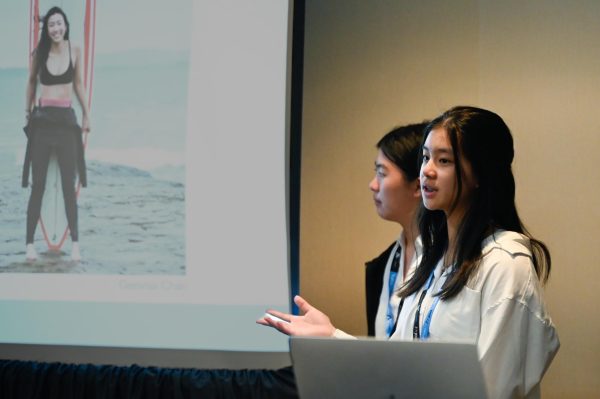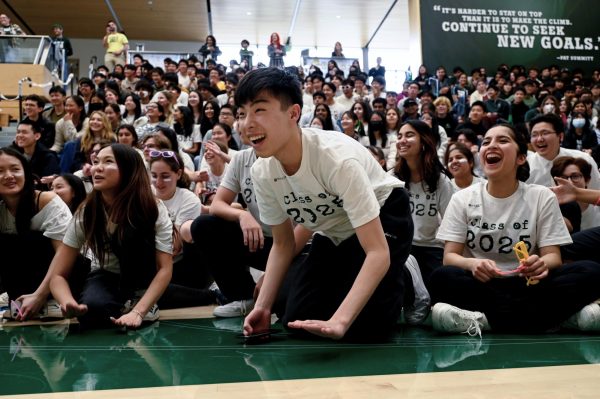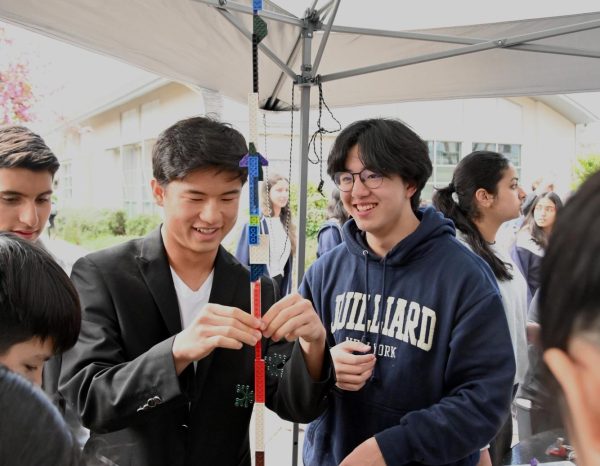Economics professor speaker provides insight on American economy
Nicholas Bloom concludes his speech about the future of the American economy. Students and teachers went to the Nichols Auditorium during long lunch to hear him speak.
January 20, 2016
Nicholas Bloom, Professor of Economics at Stanford University, spoke about the future of the American economy at an event hosted by Oeconomia today during lunch in the Nichols auditorium.
In addition to being an educator, Bloom is a Senior Fellow of the Stanford Institute for Economic Research, and serves as a co-director of the National Bureau of Economic Research Productivity, Innovation and Entrepreneurship Program.
Before working at Stanford, Bloom studied as an undergraduate at the University of Cambridge, concluded his masters at the University of Oxford and completed his PhD at University College London. After finishing his studies, he worked as a business tax policy advisor to the UK Treasury. He shifted to the London School of Economics in 2003 and moved to Stanford in 2005.
Bloom began his speech by discussing the recession and its effects, including an increase in unemployment. He continued explain how the stock market improved in the 1980’s and 1990’s. Bloom gave advice to students in an interview.
“Worry about inequality,” he said. “I suspect there’d be quite a lot of students here whose parents and families are in that top one percent, and it’s people within that group that [people] can try and change things. They’re also very influential. In terms of what to do, it’s push to reform schools.”
Bloom compared U.S. education and inequality to that of other countries and spoke about the effect inequality has had on society.
“Inequality is high and it’s rising,” he said during the talk. “It’s a big issue; here in a democracy it feels wrong if some people are earning vast amounts of money and others aren’t earning anything at all.”
AP Economics teacher Samuel Lepler discussed the applicability to students attending the talk.
“All of my students will be graduating from college five years from now, plus or minus,” he said. “And for them, what is coming in that five or 10 year period is exactly applicable to what they are going to encounter when their time comes to enter the labor market.”
Misha Tseitlin (11) attended the talk because of his interest in humanities and economic policy.
“It was very insightful and linked to a lot of things we see both in our class and in public policy in the status quo,” he said. “I think it was very relevant. [I gained] a greater perspective and appreciation for the kind of research that gets done at these universities and also a more professional opinion on what happens in the world at large.”
Anuva Mittal (11), another AP Economics student, went to the talk for her economics class.
“I thought it was really interesting, and it was really relevant because we’re learning about GDP, inflation and unemployment in class right now,” she said. “I was able to gain insight into the real world and how these concepts that we’re learning in class actually apply to everyday life.”
Oeconomia plans to hold its next meeting next Tuesday at 12:30 p.m. in Lepler’s room.































![Setter Emma Lee (9) sets the ball to the middle during the match against Pinewood on Sept. 12. “[I’m looking forward to] getting more skilled, learning more about my position and also becoming better friends with all of my teammates, Emma said.](https://harkeraquila.com/wp-content/uploads/2023/09/DSC_4917-2-1200x795.jpg)













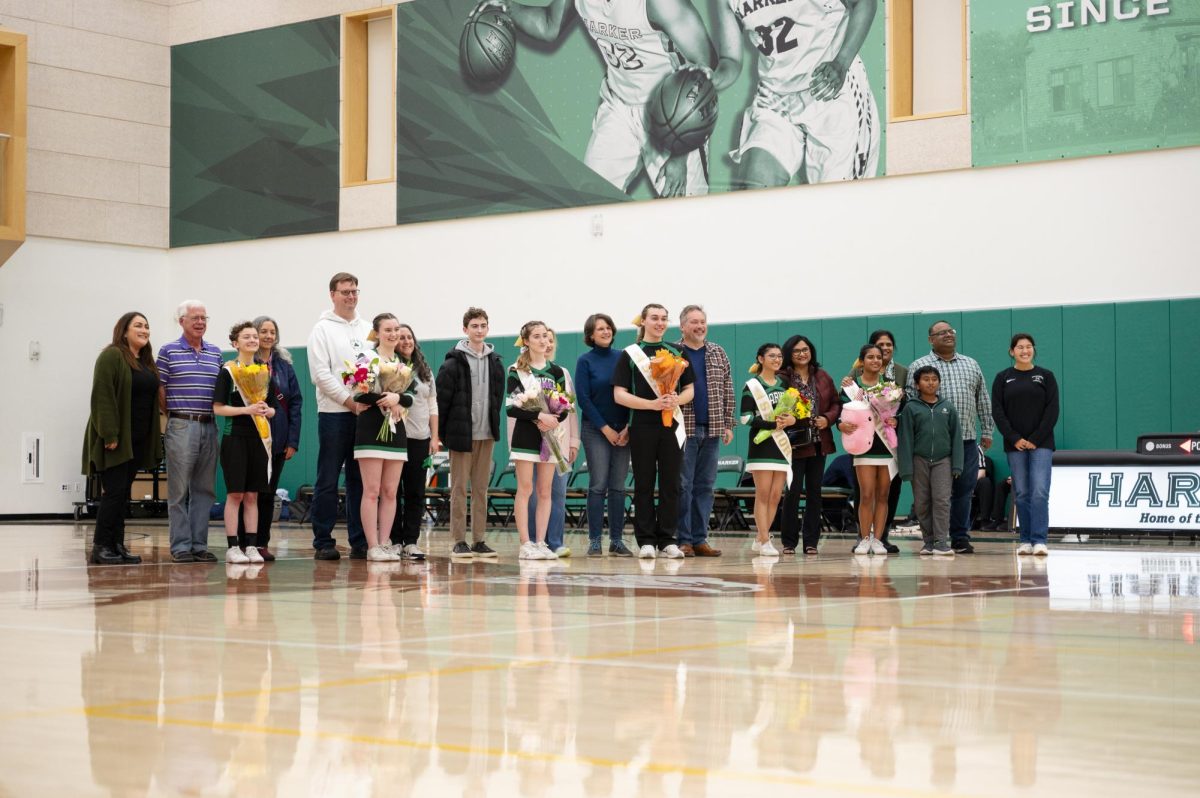






















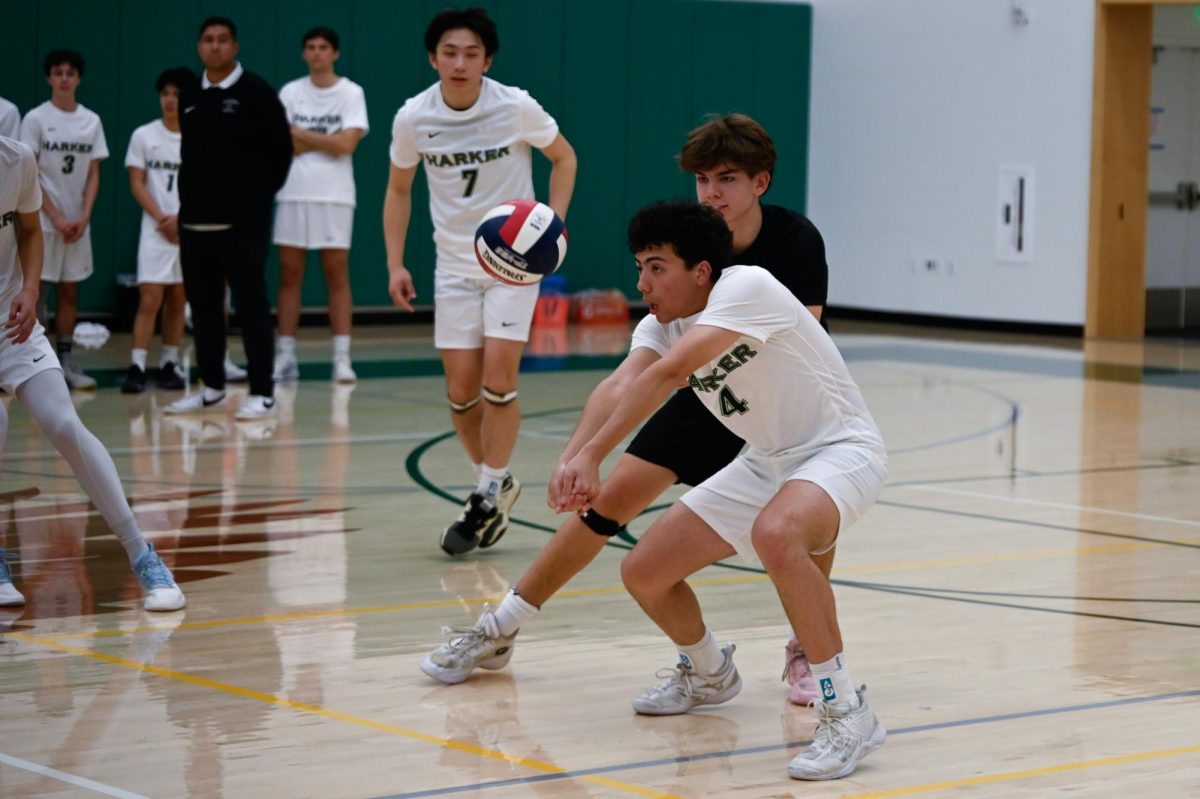




























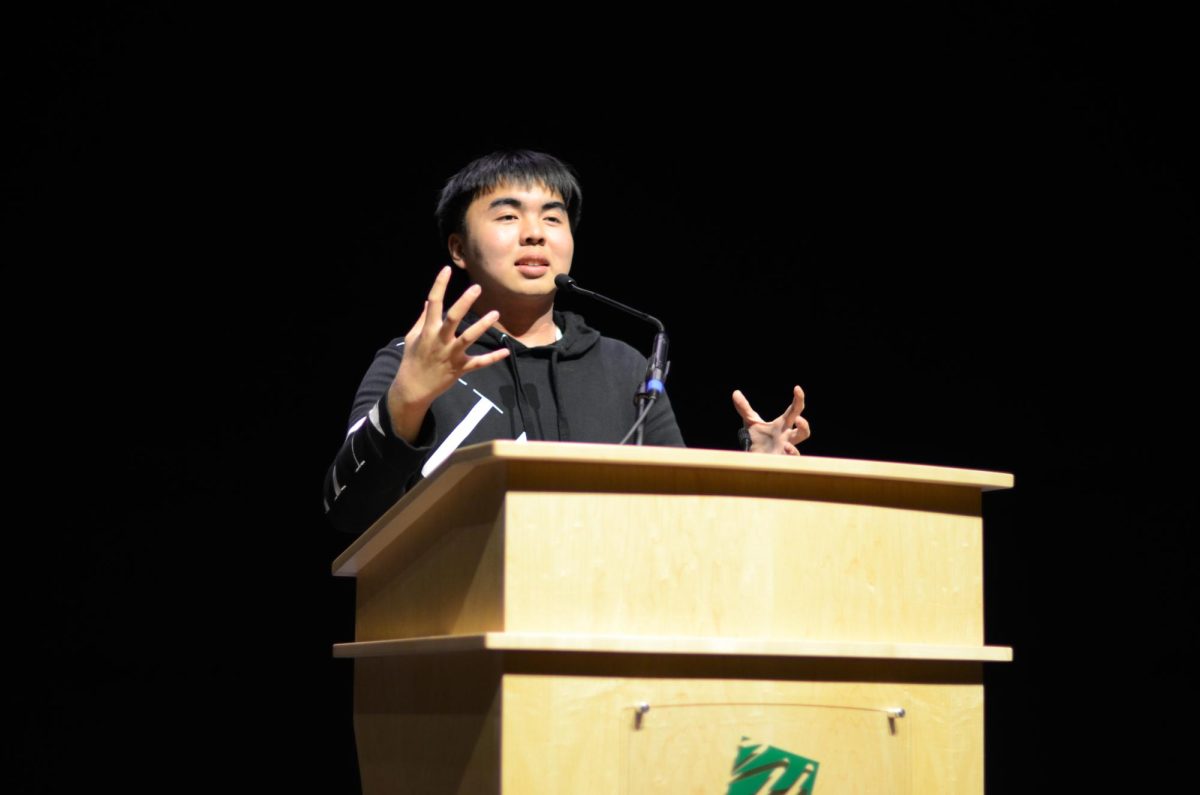


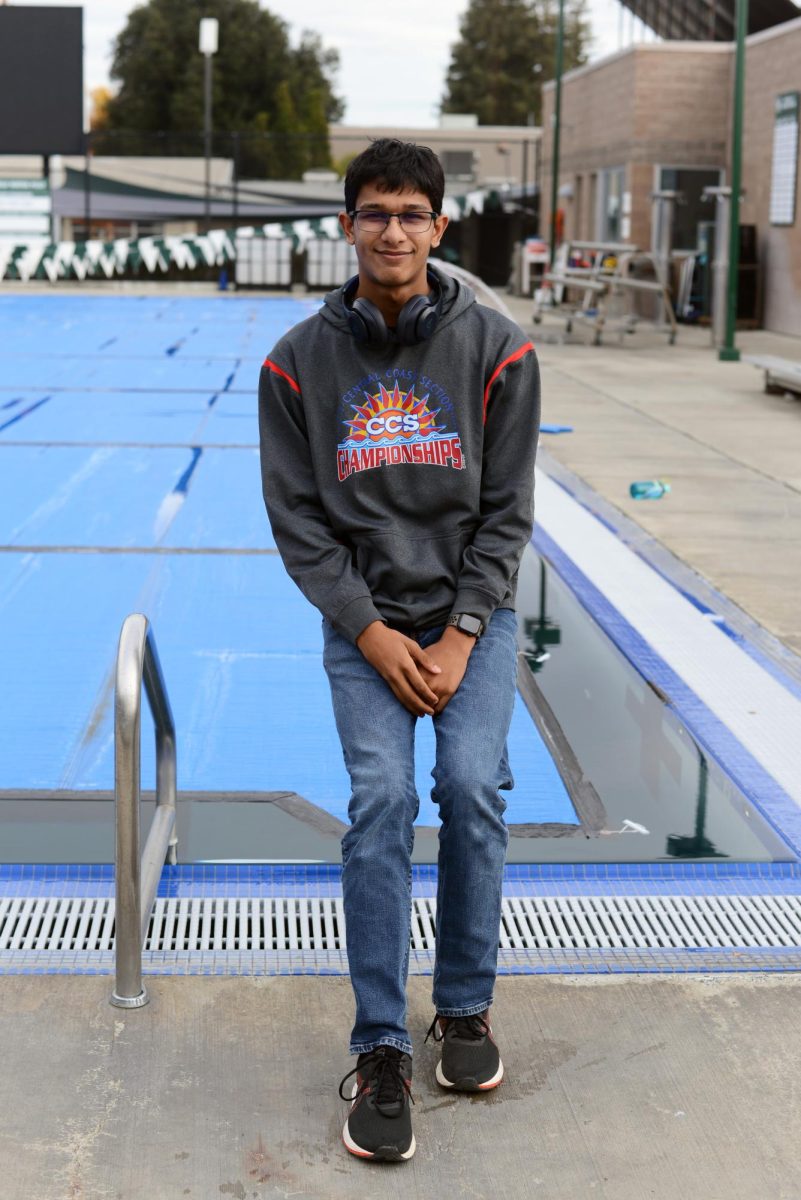
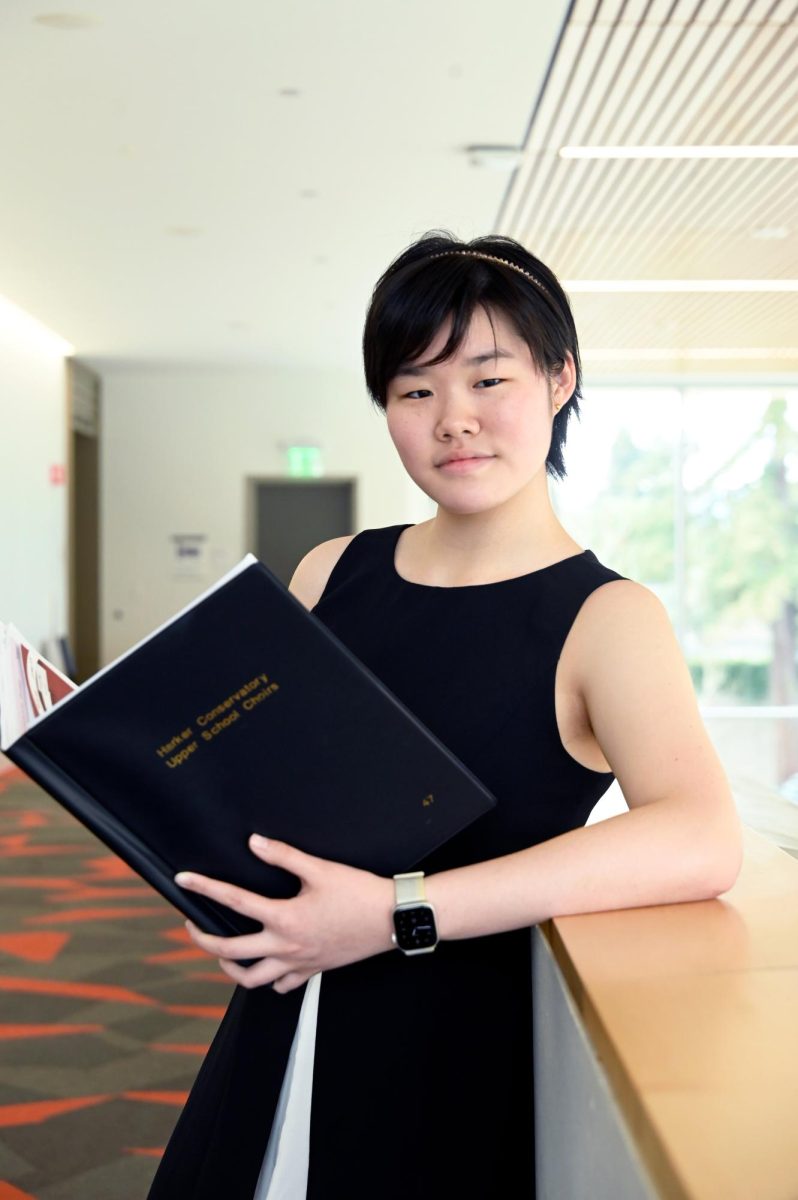








![“[Building nerf blasters] became this outlet of creativity for me that hasnt been matched by anything else. The process [of] making a build complete to your desire is such a painstakingly difficult process, but Ive had to learn from [the skills needed from] soldering to proper painting. Theres so many different options for everything, if you think about it, it exists. The best part is [that] if it doesnt exist, you can build it yourself, Ishaan Parate said.](https://harkeraquila.com/wp-content/uploads/2022/08/DSC_8149-900x604.jpg)


![“Animation just clicked in a way. I had been interested in art, but that felt different. [Animation] felt like it had something behind it, whereas previous things felt surface level. I wasnt making that crazy of things, but just the process of doing it was much more enjoyable, Carter Chadwick (22) said.](https://harkeraquila.com/wp-content/uploads/2022/08/Screen-Shot-2022-08-16-at-9.44.08-AM-900x598.png)


![“When I came into high school, I was ready to be a follower. But DECA was a game changer for me. It helped me overcome my fear of public speaking, and its played such a major role in who Ive become today. To be able to successfully lead a chapter of 150 students, an officer team and be one of the upperclassmen I once really admired is something Im [really] proud of,” Anvitha Tummala (21) said.](https://harkeraquila.com/wp-content/uploads/2021/07/Screen-Shot-2021-07-25-at-9.50.05-AM-900x594.png)



![“[Volleyball has] taught me how to fall correctly, and another thing it taught is that you don’t have to be the best at something to be good at it. If you just hit the ball in a smart way, then it still scores points and you’re good at it. You could be a background player and still make a much bigger impact on the team than you would think,” Anya Gert (’20) said.](https://harkeraquila.com/wp-content/uploads/2020/06/AnnaGert_JinTuan_HoHPhotoEdited-600x900.jpeg)

![“Im not nearly there yet, but [my confidence has] definitely been getting better since I was pretty shy and timid coming into Harker my freshman year. I know that theres a lot of people that are really confident in what they do, and I really admire them. Everyones so driven and that has really pushed me to kind of try to find my own place in high school and be more confident,” Alyssa Huang (’20) said.](https://harkeraquila.com/wp-content/uploads/2020/06/AlyssaHuang_EmilyChen_HoHPhoto-900x749.jpeg)













![“My slogan is ‘slow feet, don’t eat, and I’m hungry.’ You need to run fast to get where you are–you arent going to get those championships if you arent fast,” Angel Cervantes (12) said. “I want to do well in school on my tests and in track and win championships for my team. I live by that, [and] I can do that anywhere: in the classroom or on the field.”](https://harkeraquila.com/wp-content/uploads/2018/06/DSC5146-900x601.jpg)

![“I think getting up in the morning and having a sense of purpose [is exciting]. I think without a certain amount of drive, life is kind of obsolete and mundane, and I think having that every single day is what makes each day unique and kind of makes life exciting,” Neymika Jain (12) said.](https://harkeraquila.com/wp-content/uploads/2017/06/Screen-Shot-2017-06-03-at-4.54.16-PM.png)







